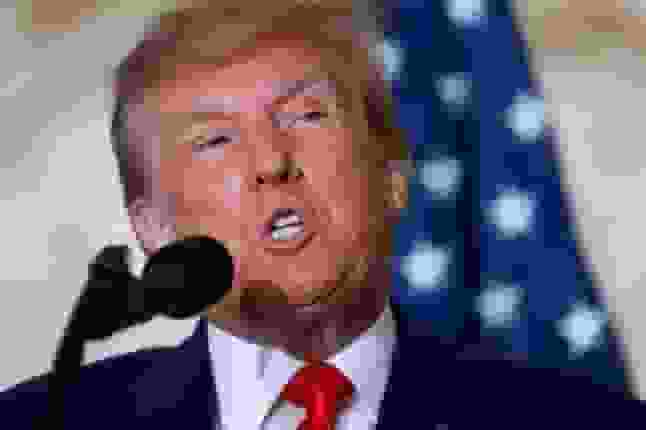
In an unexpected turn of events, a major witness has come forward in the continuing Trump papers case, providing light on significant aspects that may change how the inquiry is conducted.
An ex-employee of Mar-a-Lago, the opulent private club owned by former President Donald Trump, is at the center of this momentous development.
Worker Unveils Trump Aide Moving Classified Documents
According to a person familiar with the situation, a maintenance worker at the former president’s private club observed an aide moving boxes into a storage room the day before a crucial meeting last year between a lawyer for former President Donald Trump and officials seeking the return of classified documents in Trump’s possession.
In the end, the maintenance worker helped the aide—Walt Nauta, who served as Trump’s valet in the White House—move the boxes.
However, the individual with knowledge of the situation claimed that the worker was unaware of what was contained in the crates.
According to the source, the maintenance worker told federal prosecutors about this incident.
The employee’s story could be important to prosecutors as they piece together information about how Trump handled confidential materials he removed from the White House after leaving office and whether he interfered with efforts by the Justice Department and the National Archives to recover them.
In the storage space where Nauta and the maintenance worker were moving boxes the day before the Justice Department’s top counterintelligence official, Jay Bratt, traveled to Mar-a-Lago in Florida last June to request the return of any government materials held by the former president, it was discovered that Trump was keeping some of the papers there.
The return of the materials had been demanded in a subpoena that the Justice Department had issued weeks earlier.
Authorities have been investigating if Trump moved papers about Mar-a-Lago or tried to hide some of them after receiving a subpoena.
Witnesses have been questioned by the prosecution on Nauta’s and the maintenance worker, whose identity has not been made public, roles in transporting documents at that time.
Read more: Trump Staff Allegedly Relocated Classified Mar-A-Lago Documents Ahead Of FBI Visit
Questions Surround Motive and Business Deals

Some thirty documents with confidential markings were delivered to Bratt by a Trump lawyer during his visit to Mar-a-Lago on June 3.
Also provided to Bratt was a letter, written by Corcoran but signed by a different former president’s attorney, stating that a thorough search had been made for any further evidence in answer to the subpoena but that none had been discovered. Bratt was denied entry to the storage area at that time.
More than 100 additional classified documents were discovered at Mar-a-Lago two months later during a warranted FBI search, including in Trump’s office and the storage room.
Witnesses about Trump’s potential motivation for possessing the documents have been questioned by the prosecution.
They have issued subpoenas for documents pertaining to Trump’s business dealings with foreign nations since he was elected president.
The criminal-fraud exception, a legal clause that can be invoked when investigators have proof that a lawyer’s services may have been used in the commission of a crime, was successfully used by prosecutors in March to breach Corcoran’s attorney-client privilege with Trump.
Read more: Winning Strategy: DeSantis 2024 Donors Mobilize At Miami Four Seasons, Raising Impressive $8 Million

